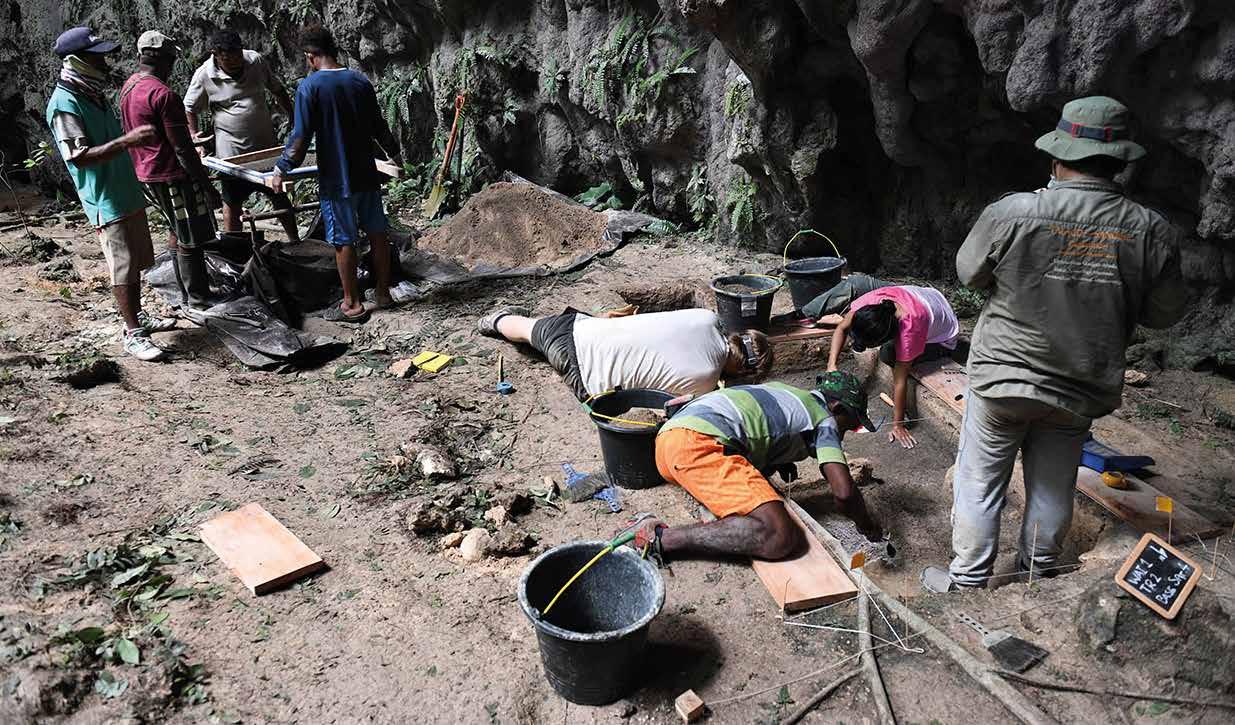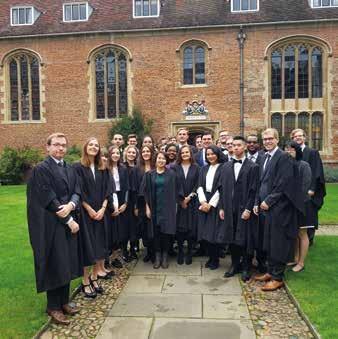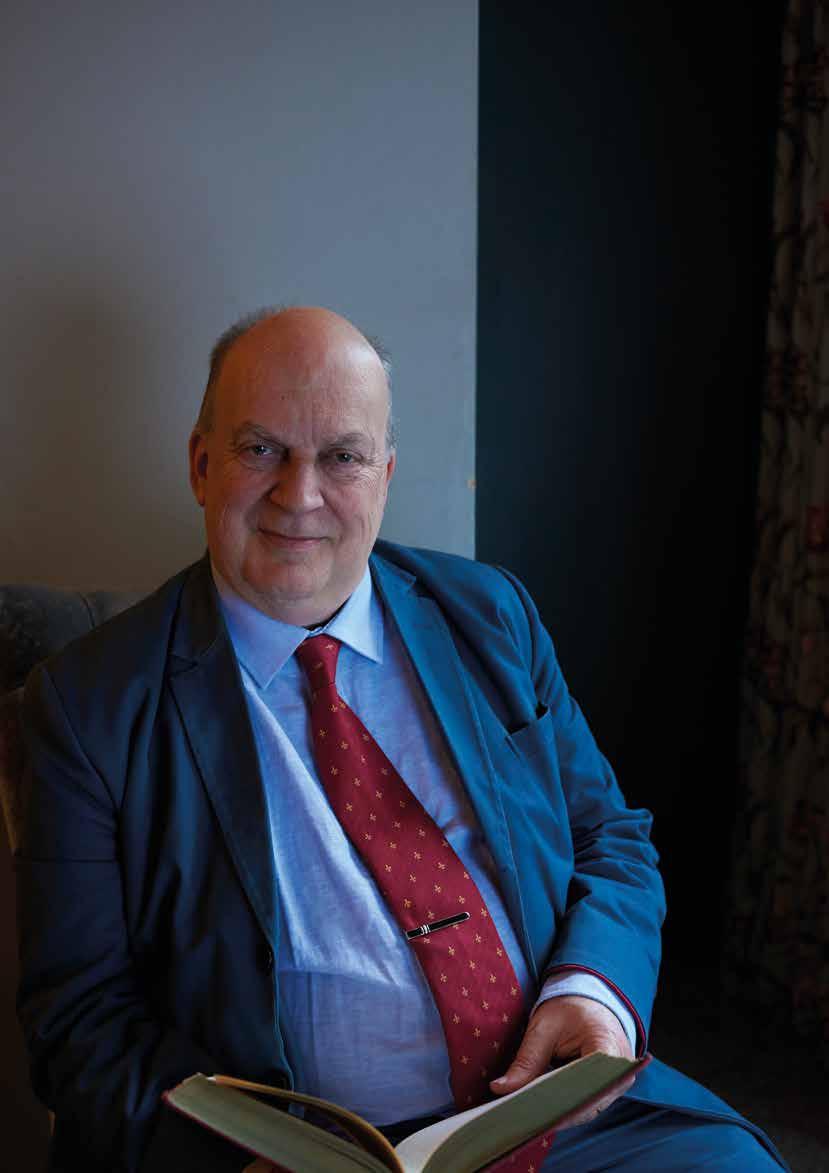
3 minute read
Seamus Heaney's Escape from History
By Mr Fintan O'Toole (2019), Parnell Fellow
On April 24th 1960, the Wolfe Tone Dramatic Society in Bellaghy, County Derry, staged a one-act melodrama, James Ignatius Fanning’s Melody Alone, about the last hours of the Irish nationalist hero Robert Emmett. Plays about Emmett, who was executed in Dublin in 1803, following a grimly abortive attempt at a rising, had long been a staple of popular Irish nationalist culture. The audience that flocked to the Gaelic Athletic Association (GAA) hall in the village would have known the main characters as well as a Greek audience would have known the figures from collective myths they were about to see in a tragedy by Euripides. As well as Emmett, there were his sweetheart Sarah Curran, the insidious informer Leonard McNally and the cruel Major Sirr.
Advertisement
This was not just a historical drama. It was history understood as a drama. Emmett embodied an idea of resistance, defeat and resurrection that was evoked in 1848, 1867 and in 1916. While his martyrdom, for the most part, had been sentimentalised into a lachrymose harmlessness, it could still be incendiary: Patrick Pearse, leader of the 1916 Rising, saw himself quite explicitly as a reincarnation of Emmett. This 1960 production, moreover, was being staged in Unionistdominated Northern Ireland. Both the play and its context were loaded with signifiers of allegiance to an oppositional nationalist culture: Emmett, Wolfe Tone, the GAA. Alongside the actual performance, there was inevitably on such an occasion the implication of a much larger drama being imagined collusively by the audience: Irish nationalism, at some point in the future, fulfilling its long-thwarted destiny.
The star of the production, playing Robert Emmett, was a student from the local area who had made his debut a year earlier with the Wolfe Tone players in another nationalist melodrama, For the Land She Loved, set during the 1798 rising. The reviewer for the Mid-Ulster Observer was stunned by the performance of the leading man: “Never can there have been a more true characterisation… Is there a better portrayal of the ‘darlin’ of Erin? We think not.” This “fiery”, “idealistic” and “noble” Robert Emmett was Seamus Heaney, who had just celebrated his 21st birthday.

Seamus Heaney, portrait taken shortly after winning the 1995 Nobel Prize, by Bobbie Hanvey.
As this year’s Parnell Fellow at Magdalene, I am working on the official biography of Seamus Heaney, who was of course an honorary fellow. As a tribute to him, and to his great friend Professor Eamon Duffy, I had planned (before the intervention of Covid-19 in all our lives) to give the annual Parnell lecture on Heaney and history. It is not, as this vignette illustrates, an abstract subject. Nor is it a simple one. For even in this little moment, we can see two things.
One is that Heaney, as a young man, could not avoid a very specific and inherited notion of what history means and where it is tending. Indeed, the evidence suggests that he was both willing and able at that point in his life to inhabit a communal, even tribal, history. The other, though, is that he chose, as a poet, to forget or elide this moment. In Stepping Stones, his marvellous book of autobiographical interviews, conducted by Dennis O’Driscoll, Heaney does mention “historical pageants based on the rebellion and capture and execution of Robert Emmett”. But it is in the context of seeing them performed by a travelling professional troupe, not of being himself an incarnation of Emmett. Immediately after this answer, he is asked whether seeing such plays imbued him “with the ambition to perform.” His reply is: “Not at all.”
The point here is not that writers – poets especially – invent their pasts, choosing what is useful and what can be discarded. Of course they do. It is rather that what is discarded can be a source of creativity just as much as what is chosen. In this case, there is a richly fertile unease, a willed amnesia that proves to be imaginatively potent. Throughout his poetic career, Heaney would explore a number of alternative ways of thinking about history and this restlessness would fuel some of his greatest work. This is perhaps a lesson in the importance of having to live down one’s youthful triumphs.
www.magd.cam.ac.uk








